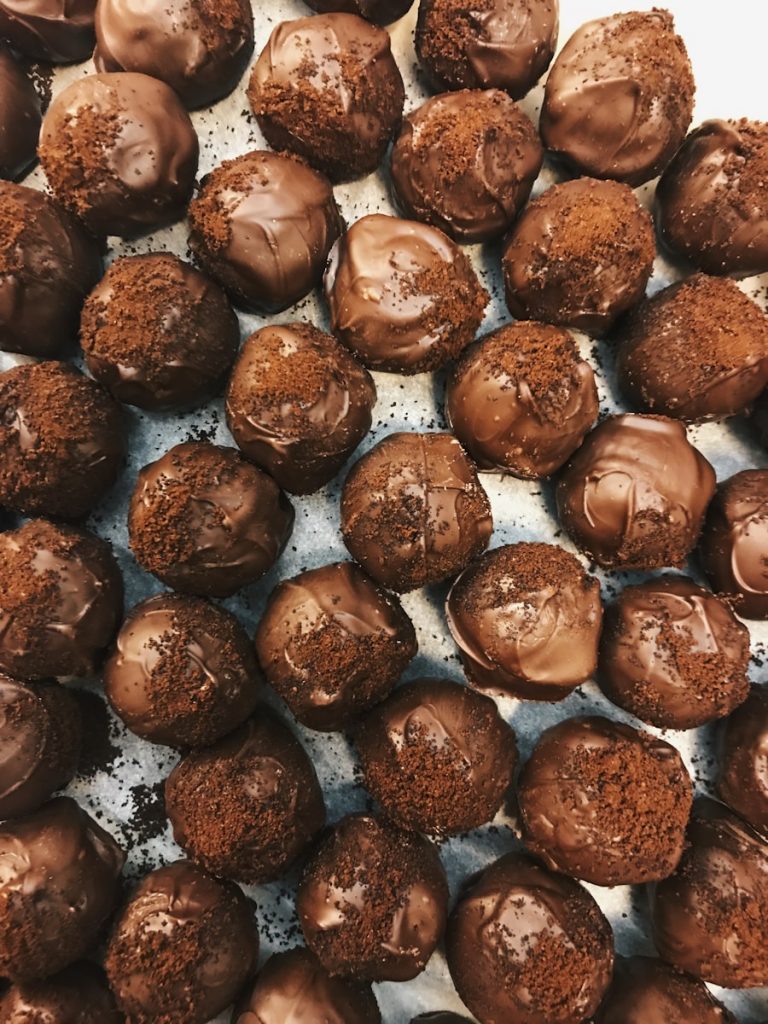If there’s one thing that can bring people together, it’s a shared love for sweets. Whether it’s the silky melt of chocolate or the satisfying crunch of candy, these treats have a special place in our hearts (and taste buds!). But have you ever wondered how these sugary delights came to be? Let’s take a journey through time and dive into the history of candy and chocolate, from their ancient beginnings to the modern indulgences we enjoy today.
Ancient Origins: Sweets of the Past
Long before M&M’s and Skittles dominated our snack aisles, people across ancient civilizations were already enjoying sweet treats. Around 1500 BC, the ancient Egyptians were known to mix honey with nuts and fruits to create some of the earliest forms of candy. Honey wasn’t just a topping for their bread but a true indulgence, treasured and often offered to the gods in religious rituals.
Meanwhile, in Central and South America, the Mayans and Aztecs were embracing their version of chocolate, though it was far from the creamy bars we’re used to today. They would ground cacao beans into a paste and mix it with water, spices, and even chili peppers to create a frothy, bitter drink. While this concoction doesn’t sound like a Hershey bar, it was a beloved part of their culture, reserved for the elite and used in sacred ceremonies. This was the earliest form of chocolate, and from here, the sweet story continued to unfold.
The European Chocolate Craze: Sweet Evolution
Fast forward to the 16th century, and cacao finally made its way to Europe. The Spanish conquistadors, after encountering chocolate in the Americas, brought it back to the Old World, where it took on a new form—sugar was added to sweeten the bitter drink, and it quickly became a hit among the European elite. But it wasn’t until the 19th century that modern candy and chocolate as we know them began to take shape.
Industrialization changed the game, allowing for the mass production of chocolate and candies. Chocolate transformed from a bitter drink into a solid treat that people could actually bite into. Companies like Cadbury and Hershey’s played a major role in shaping how the world consumed chocolate. With their innovative processes and bold flavors, chocolate bars, and candies were no longer just for royalty—they were for everyone.
Suddenly, sweets weren’t a rare luxury but a popular snack, readily available and affordable. This period marked the beginning of our obsession with candy and chocolate, where these treats became more accessible to the public, sparking a global love affair that continues today.
Fun Flavors: Modern Candy Takes Center Stage
By the 20th century, candy companies were getting creative. No longer content with simple chocolate or sugar-based candies, they started pushing the boundaries of flavor and texture. From gummy bears to candy-coated chocolates, the variety exploded. This era brought us iconic treats like Snickers, Reese’s, and Starburst, each with its unique spin on taste.
Modern candy lovers can take their sweet indulgence to the next level. Whether it’s an ooey-gooey caramel center or a peanut butter surprise, candy makers are constantly finding ways to make their confections stand out. Some even take it up a notch and boost flavor with whipped cream, marshmallows, or fruit fillings, creating the ultimate snack experience. The possibilities are endless in today’s world of sweets, where innovation and creativity rule the candy aisle.
Sweet Science: Chocolate and Candy in the Digital Age
These days, candy isn’t just about taste—it’s about presentation, innovation, and, of course, health trends. As people become more mindful of what they eat, the candy and chocolate industries are also evolving. We’re seeing a rise in organic chocolates, vegan candy options, and treats that cater to gluten-free or sugar-free diets. The ability to enjoy sweets while keeping things healthy has become a growing trend, adding a whole new level to the sweet game.
The power of social media has also given candy brands a new stage. From viral TikToks to Instagram-worthy desserts, candy makers are finding ways to connect with younger audiences. Candy isn’t just a snack anymore—it’s an experience. Whether it’s building an over-the-top candy charcuterie board or trying out DIY candy-making kits at home, there’s no limit to how people are interacting with their favorite sugary snacks today.
The Legacy of Sweetness: A Never-Ending Love Affair
From its humble beginnings in ancient Egypt and the cacao fields of the Americas to the modern candy bars we grab at checkout counters, the history of sweets is long and rich. Through the centuries, sweets have morphed and adapted, but their role in culture, celebrations, and everyday life remains strong.
Whether you’re unwrapping a piece of chocolate after a long day or indulging in a bag of candy on movie night, one thing’s for sure: candy and chocolate will always hold a special place in our hearts. The journey of these treats isn’t just about flavor but about how they’ve managed to stay relevant through the ages. As long as people crave something sweet, the story of candy and chocolate will keep evolving, and we’ll all be here for every delicious twist and turn.
So the next time you pop a piece of chocolate into your mouth, take a moment to savor its rich history—and remember, the story of sweets is far from over!

0 Comments